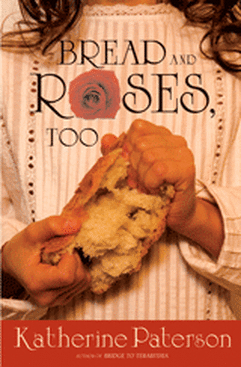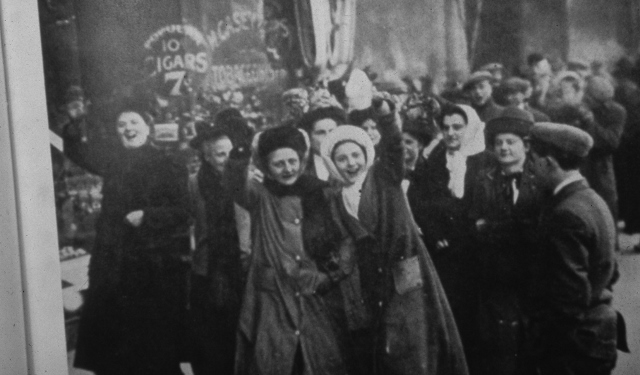|
This week in history working women took a stand--radical in 1912--they refused to take a pay cut that would bite into their daily bread. Textile mills in Lawrence, MA employed mostly girls less than 18-years-old. Nearly all immigrants, they endured ethnic slurs and sexual harassment on the job. The mills were cold in winter, hot in summer; the machinery was dangerous, but even more perilous-the filthy, crowded mills were an incubator for tuberculosis. Up to 30 percent of the women would die of consumption before their 25th birthday. The Massachusetts legislature reduced the maximum workweek to 54 hours and the new law went into effect January 1, 1912. Mill owners promptly cut wages to make up the difference. They believed the girls and women were a malleable workforce, but underestimated the workers' resolve. When women got paid, January 11 and discovered they'd been shorted, 14,000 workers walked off the job. The next week another 9,000 followed. They picketed the mills and marched in the streets. As we come marching, marching, unnumbered women dead Go crying through our singing their ancient cry for bread. Small art and love and beauty their drudging spirits knew. Yes, it is bread we fight for - but we fight for roses, too. ~written by James Oppenheim *Click here for an annoted historical study of the origin of the phrase "Bread and Roses"  One of my favorite authors, Katherine Paterson wrote a middle-grade novel entitled BREAD AND ROSES, TOO. According to the Massachusetts Labor Commission, "...the lowest total for human living conditions for an individual...was $8.28 a week. Before the strike, a third of Lawrence families earned less than $7 per week. During the six week strike police opposed the women with bayonets and clubs, one woman was shot, others threatened with arrest and many were blasted with fire hoses in freezing weather. They did not give in. Management agreed to striker’s demands for a 15% pay raise, double pay for overtime and no retaliation against workers who had joined the strike. Unfortunately, over the next few years mill owners whittled away improvements in wages and working conditions, fired union activists and engaged spies to report on workers. A depression in the textile industry exacerbated the hardships. These women and thousands of others fought the bitter battle for labor rights, one step forward, two steps back workers gained vacation, sick pay, the eight hour day and the 40 hour work week. Some gave their lives, like Fannie Sellins who I am writing my next book about. If you have the weekend off, you owe it those who've gone before. If you're working overtime, I hope you're getting paid plenty and that it's by choice. Comments are closed.
|
I'm fascinated to discover little-known history, stories of people and events that provide a new perspective on why and how things happened, new voices that haven't been heard, insight into how the past brought us here today, and how it might guide us to a better future.
I also post here about my books and feature other authors and their books on compelling and important historical topics. Occasionally, I share what makes me happy, pictures of my garden, recipes I've made, events I've attended, people I've met. I'm always happy to hear from readers in the blog comments, by email or social media. Archives
September 2023
Categories
All
|

